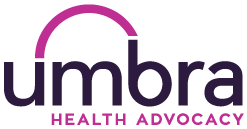How to Make Good Medical Decisions Under Pressure

We've all probably experienced how hard it is to make decisions under pressure. Our mind tends to kick into overdrive. We try to think through all the factors we need to consider. The process alone might leave us confused or stressed. Worse, the decisions we make might not be the most rational. But when we're making medical decisions under pressure, the stakes are especially high.
The pressure to make the "right" decision is even greater when you or a loved one’s health, and even life, is on the line. You may need to choose between complex treatment options that you may not fully understand. At the same time, you need to grapple with the possible consequences of your decisions.
When we face challenging, if not impossible, medical decisions, it can be extremely hard to sort through the options, especially when you have to do it quickly. Sometimes, it can feel like your healthcare provider has an agenda–or at least a preference–for one option over another. That can add to the pressure you feel, especially if it doesn’t line up with what you or your loved one wants.
No one makes their best decisions in the face of heightened emotions; fear and uncertainty taint our abilities to think straight.
How can you handle these situations? What should you do when you feel like you are being guilted into quick decisions?
Before you make medical decisions under pressure, take a pause to assess your options.

It's not often that you need to make life-altering medical decisions immediately. If you’re facing a difficult medical decision, start by giving yourself some space to think and reflect.
Remember that you do not have to make medical decisions alone. You can ask for help and support with difficult decisions.
Below are some thoughts to keep in mind as you go through difficult decision-making.
First, it is important to strike a balance between others’ and your own opinions. Doctors, consultants, friends, and family members may make suggestions based on their own experiences and opinions. Consider what they have to say, but remember that your situation, needs, and preferences may be different. And the decision ultimately falls on you. Your doctors will follow whatever choice you end up making.
Don't feel pressured into making a decision that doesn't feel right.
Second, remember that, if at all possible, the patient themselves should be consulted in medical decisions. If you are the patient, that means your voice counts more than anyone else's. But if you are responsible for making decisions for someone else, make sure you understand their wishes. Then, fight for their right to have their wishes fulfilled. Medical professionals need to listen to you as their representative.
Here are some ways to help you make decisions under pressure:
- Ask family members for input if you're not clear. Let them know that you're only asking for their input. Remember, and help them remember, you get to decide.
- If the patient is hospitalized, ask for an ethics consultation. Ethics consults are usually conducted by professionals who are not treating the patient. Those professionals will understand the ramifications of the medical decisions that must be made.
- Consult with a private advocate. Independent, private advocates are ethically bound to serve only the patient and their family, without being guided by profit motives. Their role will be to help you determine ALL your options, their pros and cons, and your (or the patients) needs, wishes and priorities. They won’t make a decision for you, but can be immensely helpful in guiding through the process.
If the pressure to make a decision continues, let your doctors know that you are consulting with your advocate. They should understand and respect your decisions. You are always entitled to be in charge of your own care.
If you are interested in consulting or learning more about private advocates and care managers, you can find more information through our national directory.
Find a Health / Patient Advocate or Navigator
Learn more about The Alliance of Professional Health Advocates
